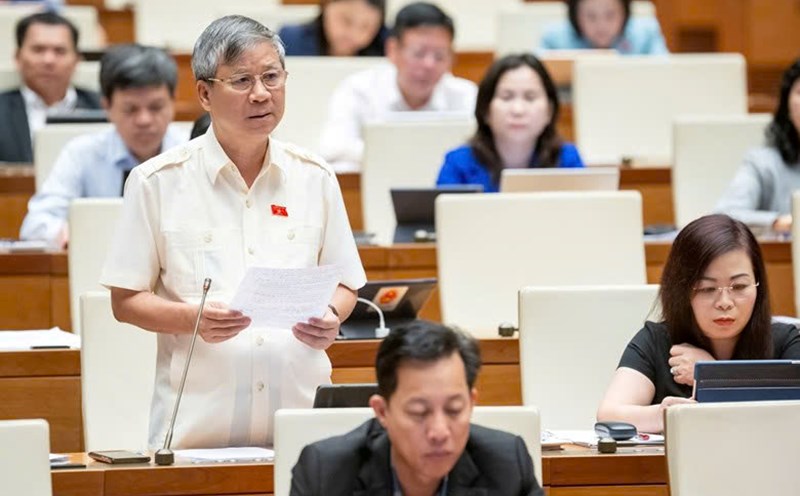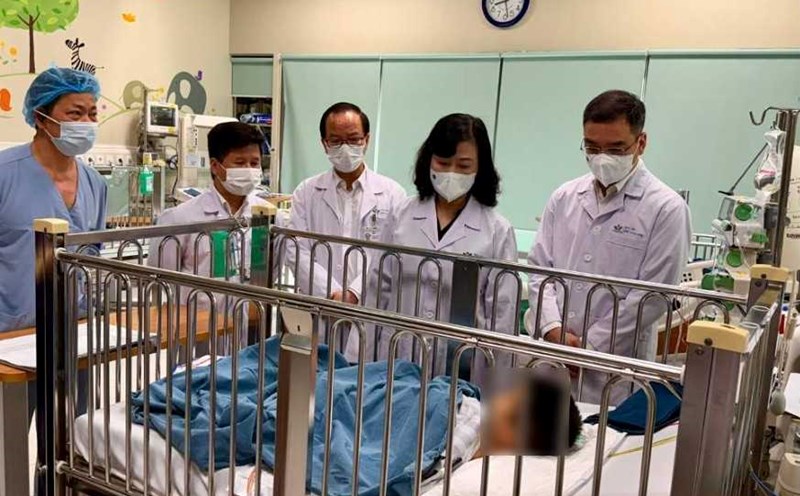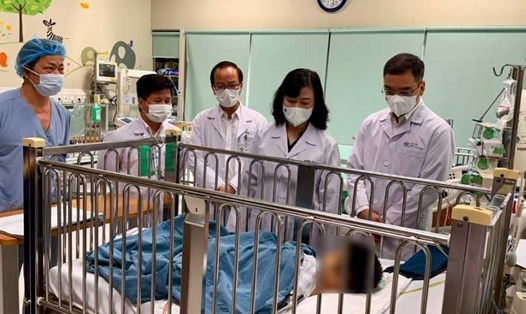At the discussion session on the revised Law on Corporate Income Tax on May 12, Delegate Nguyen Lan Hieu proposed exempting tax on drugs used by patients in inpatient treatment.
This is a proposal that has received much public attention, hoping to be institutionalized soon. Because in reality, most of the inpatients are people with serious illnesses, long-term treatment and have to use many types of medicine and medical supplies at high costs.
Meanwhile, according to current regulations, drug prices in public hospitals are not allowed to exceed the approved winning bid price. Hospitals are also not allowed to add costs such as storage, preservation, human resources for distributing medicine... to the selling price.
However, these units themselves are having to pay revenue tax (1% corporate income tax and 1% value added tax) for drug revenue.
As a result, this cost is forced to be indirectly included in the price of medical services, meaning that patients still have to "bear" taxes, even in name, drugs are purchased at preferential prices.
This is a paradox: while we set a goal of "leaving no one behind" in health care, tax policies are indirectly making the treatment costs of inpatients heavier.
In particular, for vulnerable groups such as the poor, people with chronic diseases, children's diseases or the elderly, prolonged hospitalizations mean an increasing financial burden, partly due to inappropriate taxes.
On the other hand, it is impossible to compare medicine, a special item, which plays a role in maintaining and saving human life, with conventional commercial products in the economy.
Taxing inpatient drugs is not only unreasonable in principle but also goes against the social security policy of the Party and State.
Reviewing and adjusting tax policies in the drug sector in particular and healthcare in general is still an urgent requirement in the context that many hospitals are switching to a financial autonomy mechanism, but have not been treated fairly in terms of law, especially in terms of tax obligations.
Without transparent, consistent and reasonable regulations, the public health system will continue to operate in a state of "half-powered, half-quarter-old", both worrying about costs and taxes, and in the end, the sufferers will still be patients.
Exemption from drug taxes in inpatient treatment, therefore, is an option that truly demonstrates the spirit of "leaving no one behind" in taking care of the health of the entire population. This does not cause budget losses, but on the contrary, it is a reasonable adjustment, in line with the humane goals of health policy.












